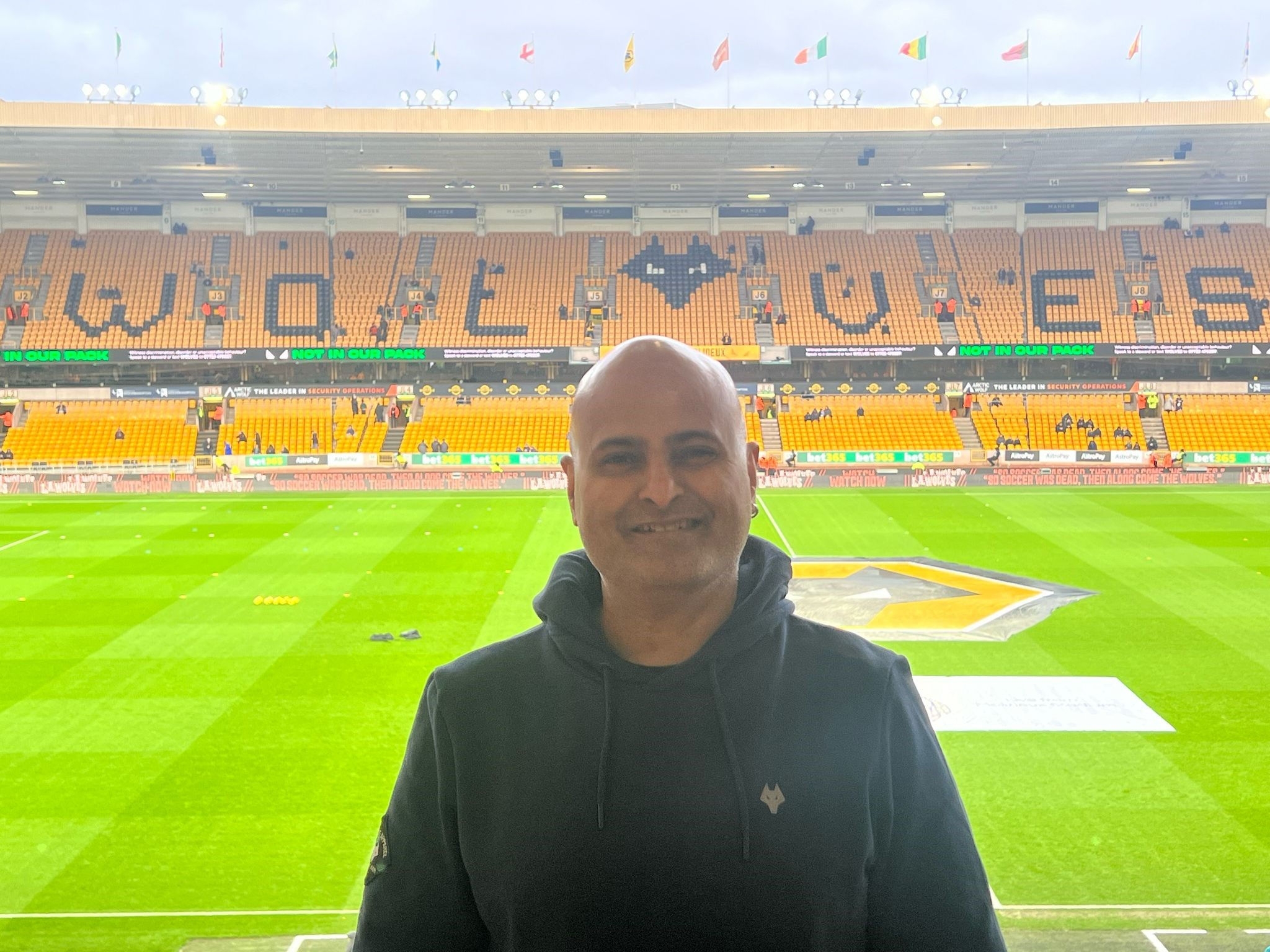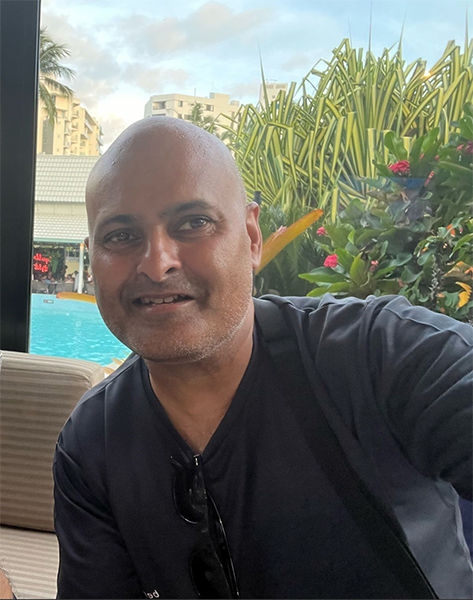- Patients
- Patient resources
- Patient stories
- Anil's story | Early prostate cancer diagnosis

Diagnosed with a silent disease: Thankfully my prostate cancer was detected before it was too late
Cancer wasn’t something Anil ever thought about. He was busy commuting to work at Canary Wharf, spending time with his wife and teenage family, cheering on Wolverhampton FC, and enjoying his passion for travel.
“I get a free annual Bupa health check through work, which I always take advantage of, and yearly GP check-ups.”
Following his recent Bupa check, Anil was told his PSA level had risen from 2.97 in 2023 to 3.26 and was advised to see a specialist to rule out prostate cancer.
“Prostate cancer was never on my mind. I was 53, with no symptoms and assumed this was just a precautionary step.
The consultant I chose performed a digital rectal exam and reassured me my prostate felt soft, which was a good sign but given my age, he recommended an MRI scan just to be sure. The MRI results showed a small area of concern but even then, the consultant felt sure it was just inflammation and suggested painkillers and going back a month later. When a second scan showed no improvement, he recommended a biopsy. When the results came, he told me he had good news and bad news. The bad news was I had grade 2 prostate cancer, but the good news was we’d caught it early”.
“Hearing the words ‘You have prostate cancer’ was a huge shock. Up to that moment, every conversation reassured me it was nothing serious. I had no symptoms, no pain, no warning signs - so from my perspective, I had been going through these appointments just for peace of mind. Now, I was faced with the reality of cancer and had to decide on the next steps. Thankfully, because my cancer was detected early, I still had treatment options, although at the time, the information felt overwhelming.
My choices were:
1. Monitor things and do nothing. That didn’t sit well with me, as it felt I was being told I’d got cancer but to do nothing until it possibly got worse
2. Undergo an invasive procedure called HIFU where sound waves are used to destroy the cancer cells
3. Have surgery to completely remove the prostate
I wasn’t keen on an invasive approach, so I asked if there were any other options. That’s when I was referred to Dr. Philip Camilleri at GenesisCare in Oxford to discuss MRI-guided radiotherapy on the MRIdian MR Linac.
“When I saw Dr Camilleri, I was immediately put at ease. He explained exactly what the treatment involved and how it would be completed in just 5 sessions over alternate days. I read testimonials on the GenesisCare website from men who’d had this treatment which really helped convince me this was the right direction for me. It’s all very well hearing it from a clinician but reading a lived experience made a big difference to me.”
Dr Camilleri explains: “Anil was a suitable candidate for MR-guided stereotactic radiotherapy because he had low volume intermediate-risk prostate cancer which was confined to the prostate. This allowed us to utilise the accuracy of MR guidance to significantly reduce side effects compared to conventional treatment. This approach also meant Anil didn’t require hormone therapy, which often comes with negative impacts on well-being, such as fatigue, mood changes, and loss of libido. Stereotactic radiotherapy offered a non-invasive and highly effective alternative that aligned with Anil's wishes and goals, providing a more targeted, less disruptive treatment option.”
Anil continues; “Initially I was worried about side effects, especially since Dr Camilleri explained I’d be receiving the same radiation dose as a conventional 20 - 37 session plan. But I needn’t have – the treatment for me was completely pain-free and it was great to have my cancer treated in less than 2 weeks. The only side effect I had was a little tiredness.

“The whole journey from receiving my diagnosis to completing my treatment was a 9 to 10-week process, and the end-to-end journey with GenesisCare was incredibly stress-free.
Before his treatment Anil chose not to tell his friends or family about his diagnosis and explained: “Telling my family was the hard part. Whilst I knew everyone would be very supportive, I hadn’t wanted to say anything until I knew what treatment I was going to have. When I did tell family and friends, people started getting themselves tested, and thankfully they’re all OK.”
“I completed my treatment just before Diwali, which was a time of reflection for me, and with my treatment behind me, I could turn the page and look to the future. I’m sharing my story because if it makes a difference to even one person, it will mean the world to me. Men need to know prostate cancer is a silent disease and you don’t always have symptoms. The earlier you catch it, the more options you have and the better your chances are of beating it.
Prostate cancer is a silent disease - by the time your body signals you’ve got it; it may already be too late
Something that really stood out to me about GenesisCare is that they focus on the whole person. As part of my treatment plan, I took up the GenesisCare Exercise Medicine programme, committing to two sessions a week for 12 weeks of intensive one-on-one physiotherapy. My personalised programme was designed specifically for me based on my treatment and overall health, with an emphasis on weights and floor exercises. Looking back, I can see how invaluable this programme was in helping me both physically and mentally.”
Six months after my treatment my recent PSA blood test shows my levels have gone down from 3.26 to 2.1. I’ll continue to have quarterly assessments to ensure my PSA continues to fall and stabilise below 1. This could be a journey for 2-3 years as my numbers could fluctuate but I feel assured I’m in control of my health going forward and GenesisCare are there for me if I have a reoccurrence.
If I hadn’t had the opportunity to have a PSA blood test when I did, my cancer would have gone undetected. So, if you’re 50+ or have a family history of prostate cancer, please get your PSA checked. It could save your life!”